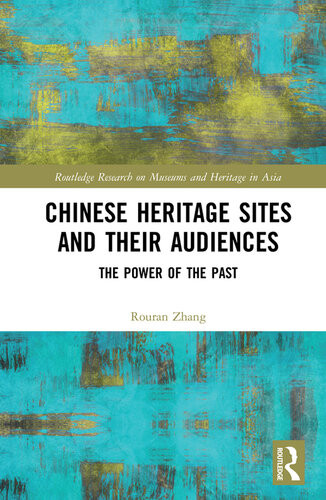

Most ebook files are in PDF format, so you can easily read them using various software such as Foxit Reader or directly on the Google Chrome browser.
Some ebook files are released by publishers in other formats such as .awz, .mobi, .epub, .fb2, etc. You may need to install specific software to read these formats on mobile/PC, such as Calibre.
Please read the tutorial at this link: https://ebookbell.com/faq
We offer FREE conversion to the popular formats you request; however, this may take some time. Therefore, right after payment, please email us, and we will try to provide the service as quickly as possible.
For some exceptional file formats or broken links (if any), please refrain from opening any disputes. Instead, email us first, and we will try to assist within a maximum of 6 hours.
EbookBell Team

0.0
0 reviewsChinese Heritage Sites and their Audiences provides a Chinese perspective on tourists’ relationship to heritage. Contributing to ongoing debates within heritage and tourism studies, the book offers insights into how and why visitors engage with such sites.
Drawing on interviews with domestic tourists, local residents and heritage officials at the World Heritage sites of West Lake, Xidi and Hongcun, Zhang argues that tourists have agency: when they visit heritage sites, they are doing cultural, social and emotional work, whilst also negotiating cultural meanings. Providing an examination of the complex interactions between locals and tourists, the author then considers how tourists navigate and interpret heritage sites. Finally, Zhang examines whether the government or locally controlled tourism enterprises are more effective in facilitating meaningful cultural interaction between tourists and locals. Overall, the book demonstrates the interrelation between tourism and heritage, and the tensions that are created when the ways in which sites are used differ from the expectations of UNESCO and national or regional site managers.
Chinese Heritage Sites and their Audiences pays particular attention to ongoing debates about heritage performances, the importance of emotions and the agency of tourists, and will thus appeal to academics and students engaged in the study of heritage, tourism, landscape architecture and anthropology.